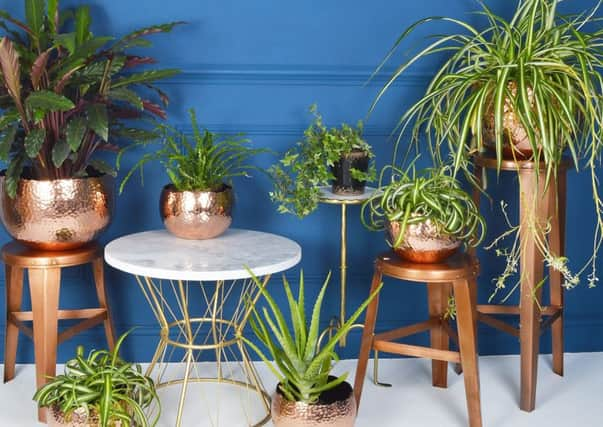How to improve the air quality in your home


The quality of the air we breathe is high on the political agenda thanks to concerns over particulates in diesel engine emissions.
We now know how toxic traffic fumes can be, yet few of us think about how clean the air is inside our homes, where we spend much of our time.
Advertisement
Hide AdAdvertisement
Hide AdA study published in the European Respiratory Journal showed that concentrations of some air pollutants can be up to five times higher indoors than outdoors.
Those who suffer from asthma and allergies have long waged a battle against dust mites, pollen, mould and chemicals found in carpets and paint but all of us could benefit from breathing cleaner air.
Here are some tips on how to achieve it.
*Invest in a mechanical heat recovery ventilation system. These are best installed when building a new home or during a major renovation as retrofitting in an existing property can be disruptive. However, the hassle and expense can be well worth it and those who have the systems are evangelical about their energy efficiency and health benefits.
They work by removing damp, warm and polluted air from a property and bringing in fresh air from outside, which is warmed by a heat exchanger and filtered to remove pollen and diesel particulates. They cost from £6,000-plus to install but do your research as some systems are better than others and cheaper ones can be noisy.
Advertisement
Hide AdAdvertisement
Hide Ad*You can also buy plug-in air purifiers. Dyson specialise in them and they come with a bladeless fan which can catch up to 99.95 per cent of particle pollutants using a HEPA filtration system. They cost from about £450.
*Air pollution monitors are common in Chinese cities. They measure pollutants, humidity and air temperature and reveal it on an LED display. They can also be connected to an App. The Laser Egg is one of the best known monitors and starts from about £130, www.laseregguk
*Use oven extractors and change the filter regularly. Frying food produces toxic fumes and humidity caused by cooking can cause black mould.
*Check your candles as many are made from paraffin wax, which gives off carcinogenic benzene and tolulene. Artificial fragrances and dyes also give off chemicals. Instead, pay a little more and opt for soy wax and natural scents. Yorkshire-based Neom and the Harrogate Candle Company have good, natural ranges. You should also ditch air fresheners, which are a toxic soup of VOCs. Instead opt for natural reed diffusers and room sprays. Neal’s Yard do a good range, www.nealsyardremedies.com. You can also make your own with a mix of witch hazel, essential oil and distilled water, which you put in a pump spray bottle or plant mister.
Advertisement
Hide AdAdvertisement
Hide Ad*Newly-painted rooms can continue to give off harmful pollutants, such as benzene, for months after the paint has dried.
Opt for chalk, clay and other eco-friendly paints. Lakeland Paints are specialists. One of their slogans is “So safe, a baby can eat it”, lakelandpaints.co.uk.
*Black mould is dangerous to health and it’s caused by damp and poor ventilation. You can scrub it off but it is likely to return so look at ventilating the area and getting rid of condensation. Extractor fans in bathrooms and dehumidifiers can work wonders. Harrogate-based Envirovent has a range of solutions, including whole house ventilation systems and a condensation control unit that lives in the loft but helps combat moisture throughout a property. www.envirovent.com
*Woodburners and real fires can release fine particulates and carbon monoxide into your home. To cut the risk only burn seasoned wood, have the flue checked and cleaned annually and ventilate the room. The smoke will settle on furniture and floors so make you sure clean with microfibre cloths, which can pick up fine particles. The cloths will also need to be cleaned afterwards. Boiling them in water is the best way.
Advertisement
Hide AdAdvertisement
Hide Ad*Invest in houseplants. They neutralise pollutants, such as formaldehyde, benzene and carbon monoxide. They are also oxygenators. Among the most effective are the spider plant, ivy, weeping fig, Boston fern and the Peace lily